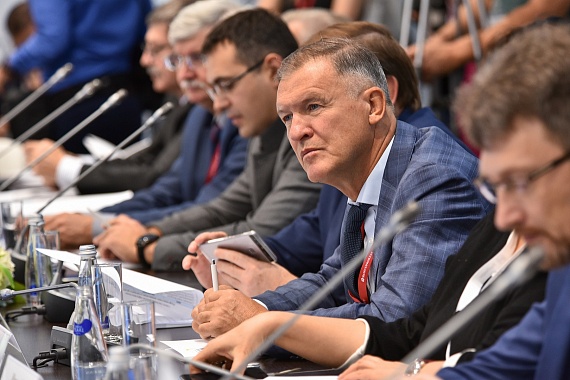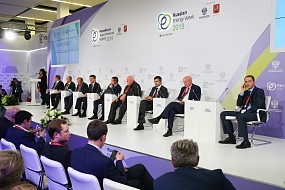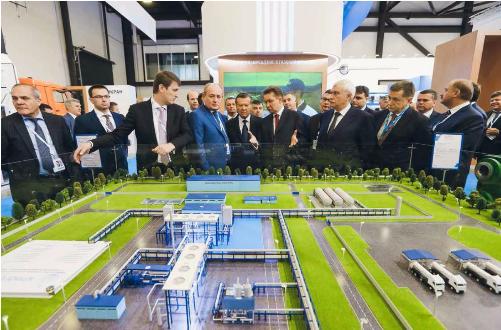Hydropower: Avenues for Sustainable Development

KEY CONCLUSIONS
Hydroelectric
power plants account for roughly 15% of the global increase in energy capacity
“Hydroelectric power plants around the world had total
installed capacity of 1.267 TW in 2017. At the same time, about 22 GW of
capacity were commissioned throughout the world in 2017, including 3.2 GW at
HPPs. The net power generation of HPPs around the globe amounted to about 4,200
TWh”, SibEnergy Technical Director Andrey Lymarev said.
HPPs
help conserve traditional resources
“In the electric power industry, a key aspect of
meeting the criteria for sustainable development is the maximum conservation of
primary non-renewable energy sources while meeting the energy needs of the
modern economy and society as well as minimizing the environmental impact
throughout the entire chain of the cycle of electricity production. Given the
growing global economic problems, air pollution, global warming, and climate
change, the production of electricity using renewable sources is considered to
be the [type of production] that best meets the listed requirements. Major HPPs
are among the most significant factors in controlling climate change. In
particular, according to the International Energy Agency, greenhouse gas emissions
would be 11% higher without existing hydropower stations, which is comparable
to emissions from road transport throughout the world”, RusHydro First Deputy
General Director and Chief Engineer Boris Bogush said.
Pumped-storage
power plants are an essential component for regulating energy systems
“According to global statistics, the power system can
only be regulated today with the help of pumped-storage power plants. Having PSPPs
makes it possible to operate nuclear and thermal power plants as well as
electrical units that use solar and wind energy in the most efficient modes and
optimize the operation of the power grid as a whole. PSPPs are the most
effective tool for ensuring energy security and energy efficiency. More
efficient and reliable storage devices that would replace PSPPs are not
expected to be established in today’s foreign and Russian electric power
industry over the next 10–15 years”, Executive Director of the Hydropower of
Russia Association of Hydropower Organizations and Workers Oleg Lushnikov said.
“If we talk about the backbone elements for the
development of sustainable energy in any country, PSPPs are among the key
components. All the modern trends in the development of renewable energy
sources would be impossible without accumulators. PSPPs are essential for
regulating the electrical power network throughout the entire world. At
present, this type of generation is developing intensively around the world and
is being actively used on an industrial scale. Considering the priorities of
PSPPs that are capable of working at the peak of the daily load curve as well
as consuming extra energy during the night-time dips in consumption, we believe
it would be appropriate to develop PSPPs in Russia”, Member of the Management
Board and Director for Development Management at System Operator of the United
Power System Aleksandr Ilienko said.
The
sustainable use of hydro-resources is a factor for regional economic
development
“The region’s sustainable development is impossible without the sustainable use of the hydro-resources that exist in the Republic of Bashkortostan. Major hydroelectric power plants are being built in areas where there is a high level of electricity consumption and also where electricity consumption is lower. Rural areas need to continue the further development of small generation (micro-HPPs)”, Bashkir Generation Company Chief Engineer Vladimir Kremer.
PROBLEMS
High
cost of operating small HPPs
“Another complication is the lack of well-developed unified technical equipment for these micro-HPPs. If it appears, it will give a further impetus to developing the construction of small generation facilities, which are important for us”, Kremer said.
SOLUTIONS
Changes
to regulatory legislation
“We need to develop the legislative framework and
settle a number of issues involving [in order to develop the construction of
micro-HPPs”, Kremer said.
Meeting
the interests of consumers and society is key to the sustainable development of
hydropower
“Our company views its contribution to the sustainable
development of hydropower as meeting the needs of consumers, shareholders,
society, investors, partners, and other concerned parties in an economically
and socially sound manner. In 2017, RusHydro set out its key objectives for the
period until 2020. They ensure the Group’s activities comply with the criteria for
sustainable development in such categories as environmental protection and also
improve the management and information disclosure system, reliability and
safety as well as social responsibility. Key activities include the development
and introduction of a biodiversity conservation programme, joining the UN
Global Compact, and joining the National Global Compact Network Association.
When compiling the list, the main provisions of the Environmental Safety
Strategy of the Russian Federation until 2025 as well as the Concept for
Russia’s Transition to Sustainable Development were taken into account”, Bogush
said.





